Rimke Vos
Joining forces for a healthier The Hague

Rimke Vos is working to make her city healthier. With a team of healthcare professionals, she wants to improve the lifestyle of patients at higher risk of cardiovascular disease and diabetes. ‘We want to reduce health inequities in the city.’

Health scientist, epidemiologist and implementation specialist Rimke Vos has always been interested in diseases that may be lifestyle-related, including diabetes and cardiovascular disease. She learned more about them and explored issues such as: How can you engage vulnerable communities in disease prevention? How do you ensure people don’t put off going to the doctor? And how do you know which lifestyle intervention suits whom? Because it’s about not just risk factors but life events or stress.
Health information, tests and speed dates
Healthcare innovation won her heart, but she soon realised, ‘You’re faster alone, but you get further together.’ This is why, as an associate professor at Health Campus The Hague, she plays a central role in connecting organisations and disciplines in healthcare and society. ‘We want to work together to reduce health inequities in The Hague. One example is the group consultations, a project launched in the Schilderswijk neighbourhood in The Hague, in collaboration with GP Loïse Jacz.’
At these consultations, residents come together to talk with each other and with professionals. They receive information about how lifestyle choices can help prevent diabetes and cardiovascular disease. The Dutch Heart Foundation is also on hand to check people’s blood pressure, cholesterol, blood sugar and weight. ‘You can even speed date with lifestyle initiatives in the neighbourhood – like a cooking group or walking club. Plus, the community sport coach, social services and GP are also there to offer health advice.’
More effective than a leaflet
The approach is proving effective. ‘Going into the community works better than handing out leaflets. People can immediately see what’s going on in their neighbourhood. That’s how we encourage healthier lifestyles.’
Rimke and her co-organisers are determined to build something lasting. ‘It takes time to build trust in vulnerable communities, and we don’t want to betray that by showing up once and never again.’
The researchers also hope to reach more residents. ‘People who rarely visit a doctor, for example. That’s why we’re going to community centres and mosques. We want to build something permanent in The Hague. We’ve received a grant for another 40 group consultations – thanks to the Municipality of The Hague, health insurer CZ , Hadoks (a GP organisation in the Haaglanden region) and ZonMw/Cities for Better Health, which is supporting the evaluation. But we really want to reach all neighbourhoods where people with a lower socioeconomic position live.’
Snowball effect
There’s strong enthusiasm for the project, says Rimke, with other municipalities, politicians and civil society organisations already expressing interest. ‘It creates a snowball effect – it starts with a small group, and more and more people join in. We’re hoping to implement this initiative in a sustainable, professional way. It’s genuinely inspiring to see – not just sitting behind your laptop but actively working on healthcare innovation.’
Want to join in?
Click on the button below for more information about group consultations.
Group consultation-
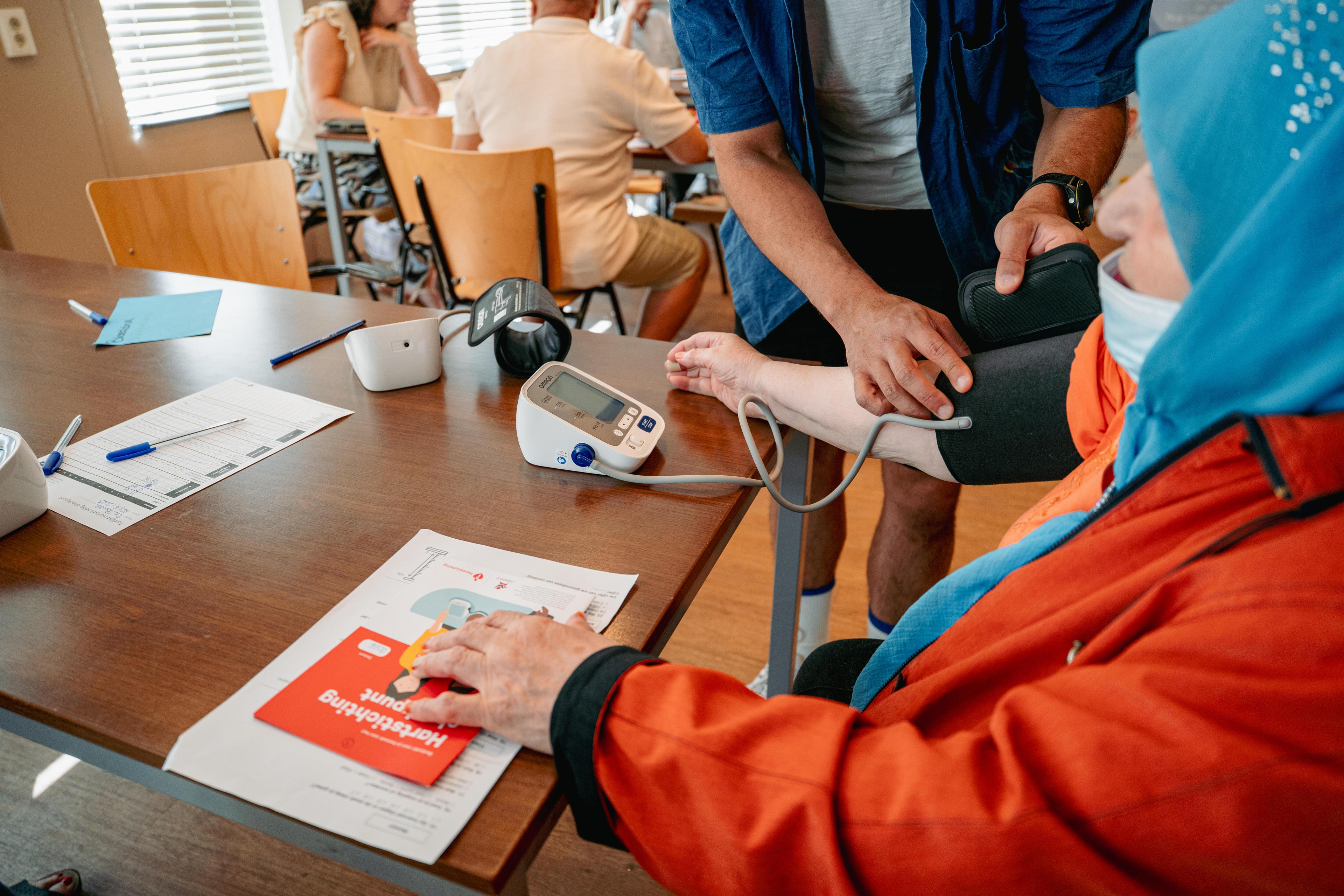
Group concsult with researcher Rimke Vos -
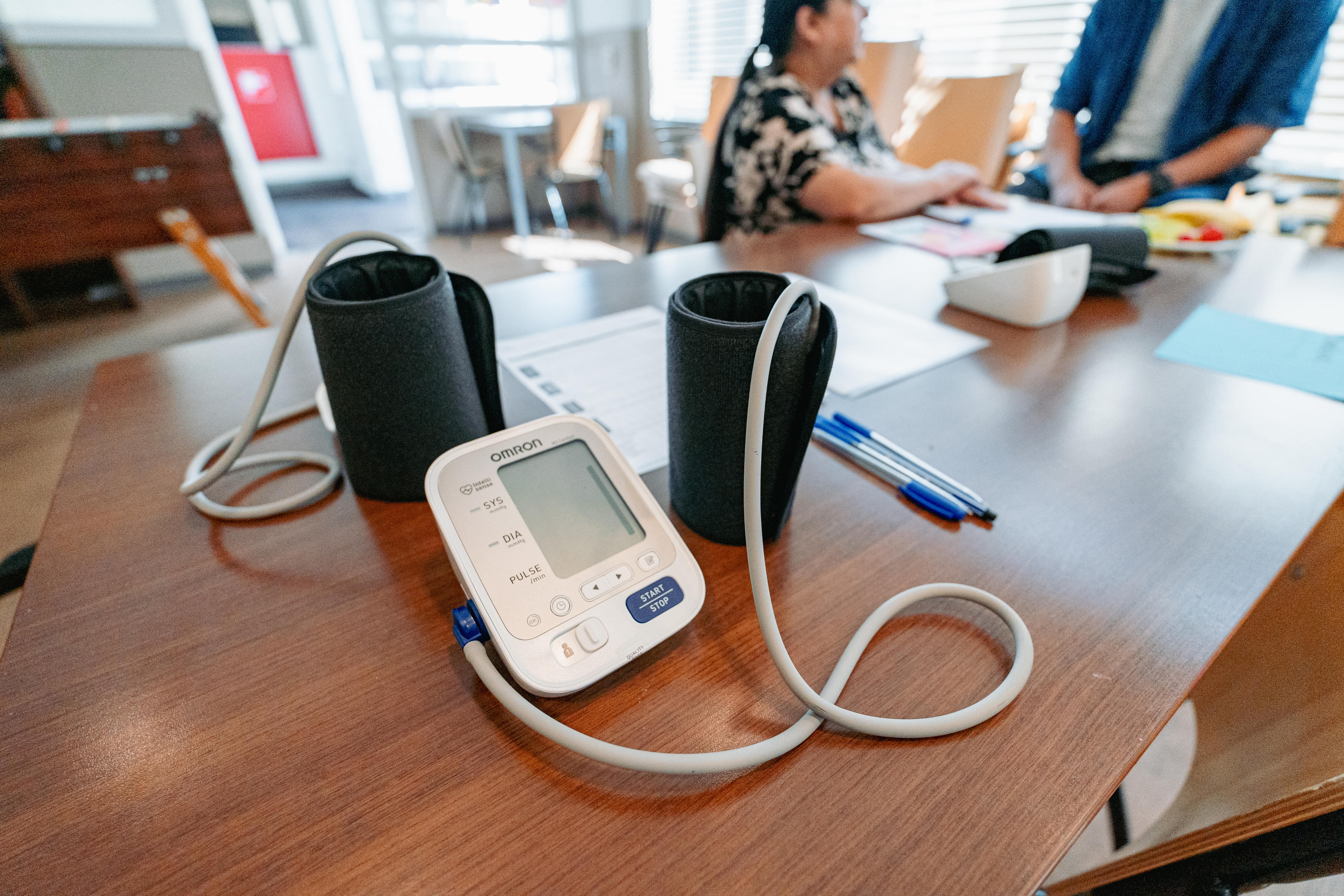
-
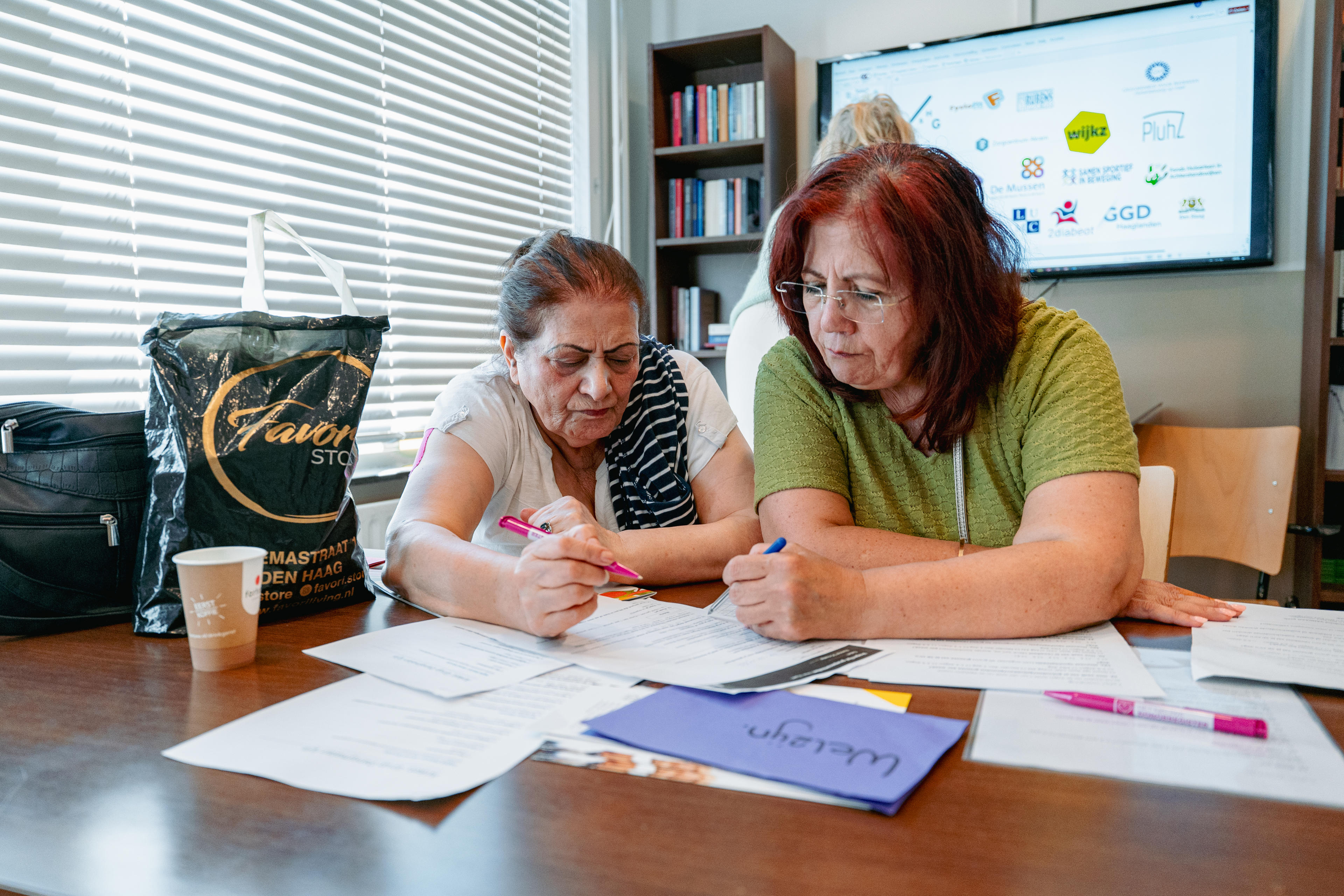
-
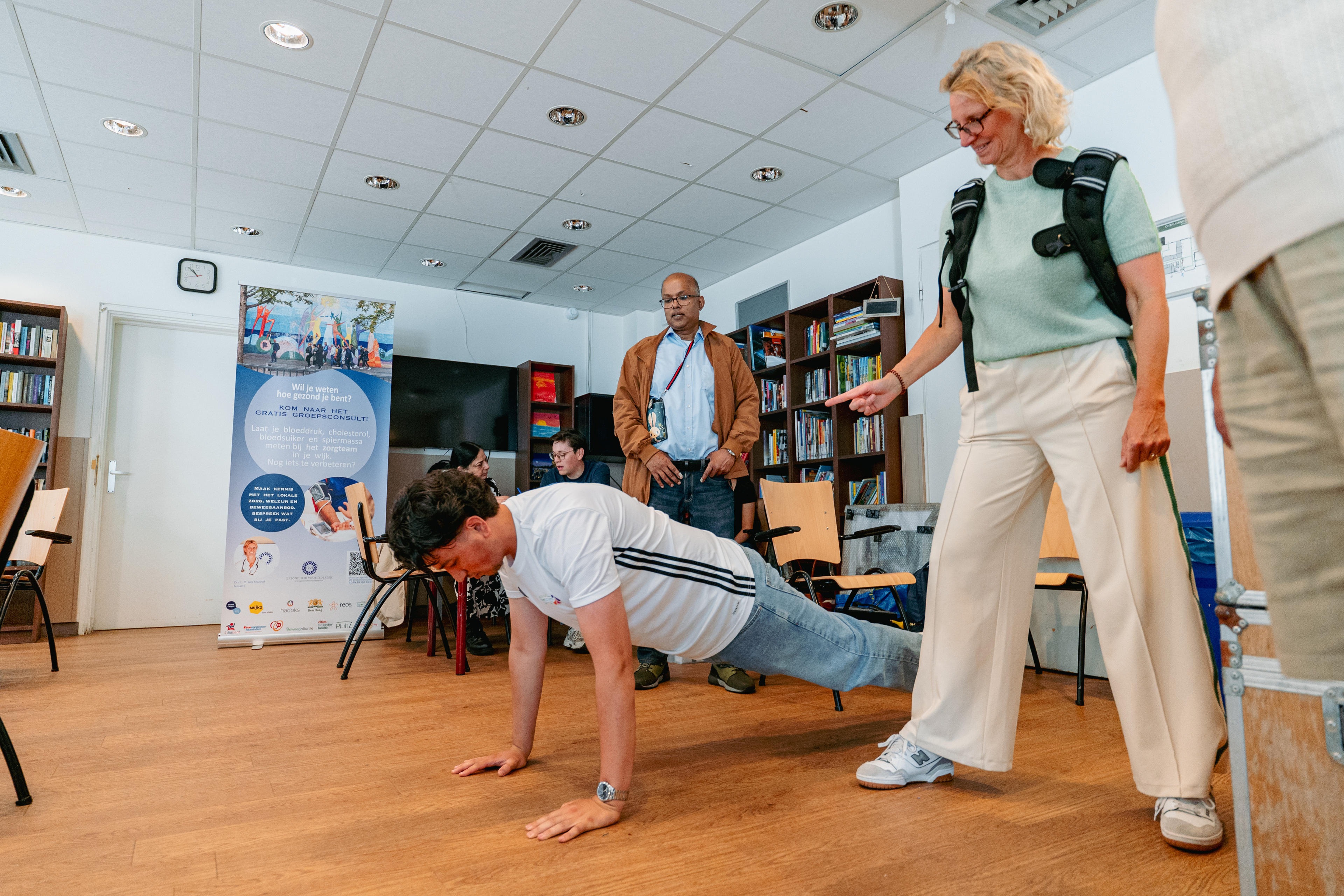
-
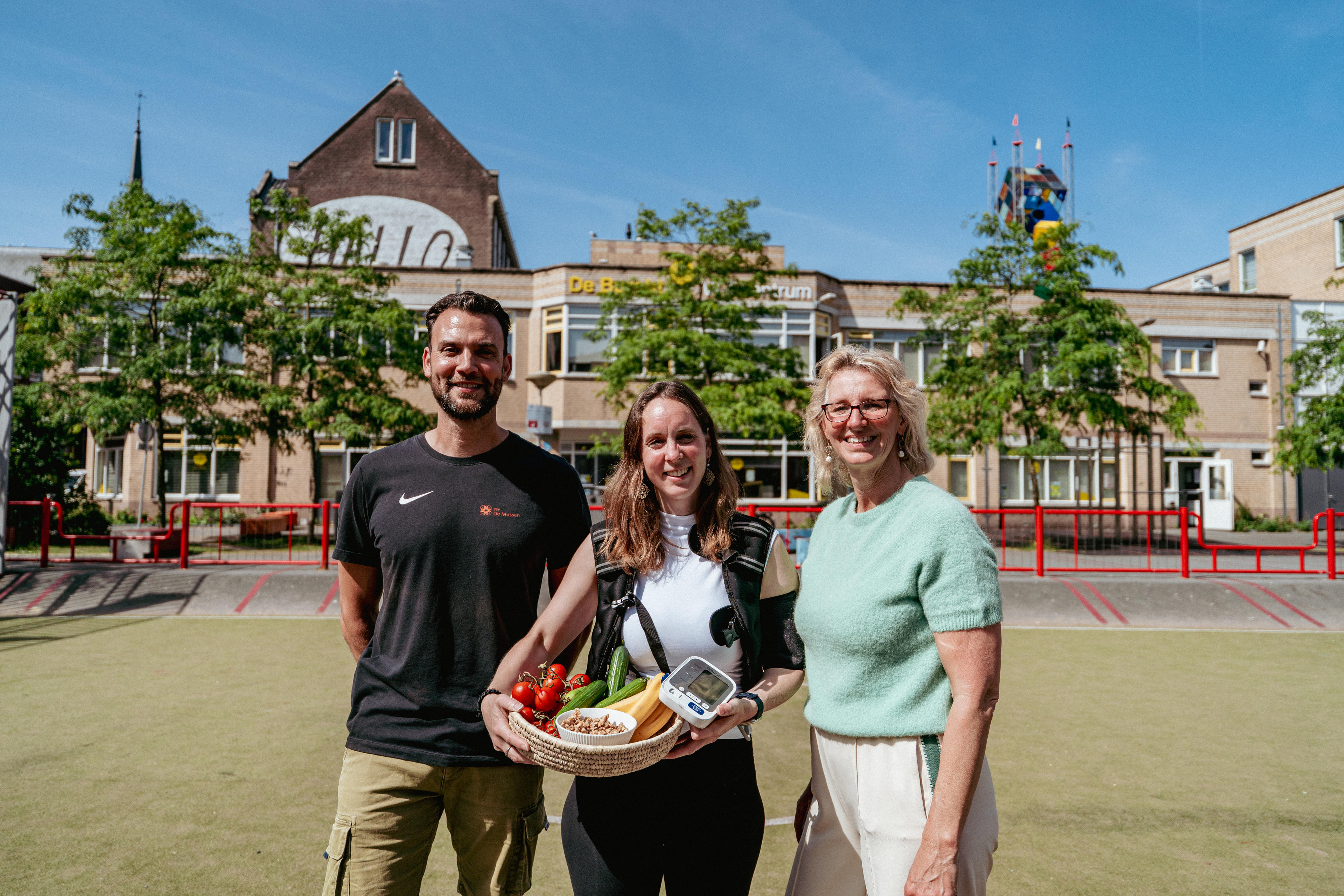
-
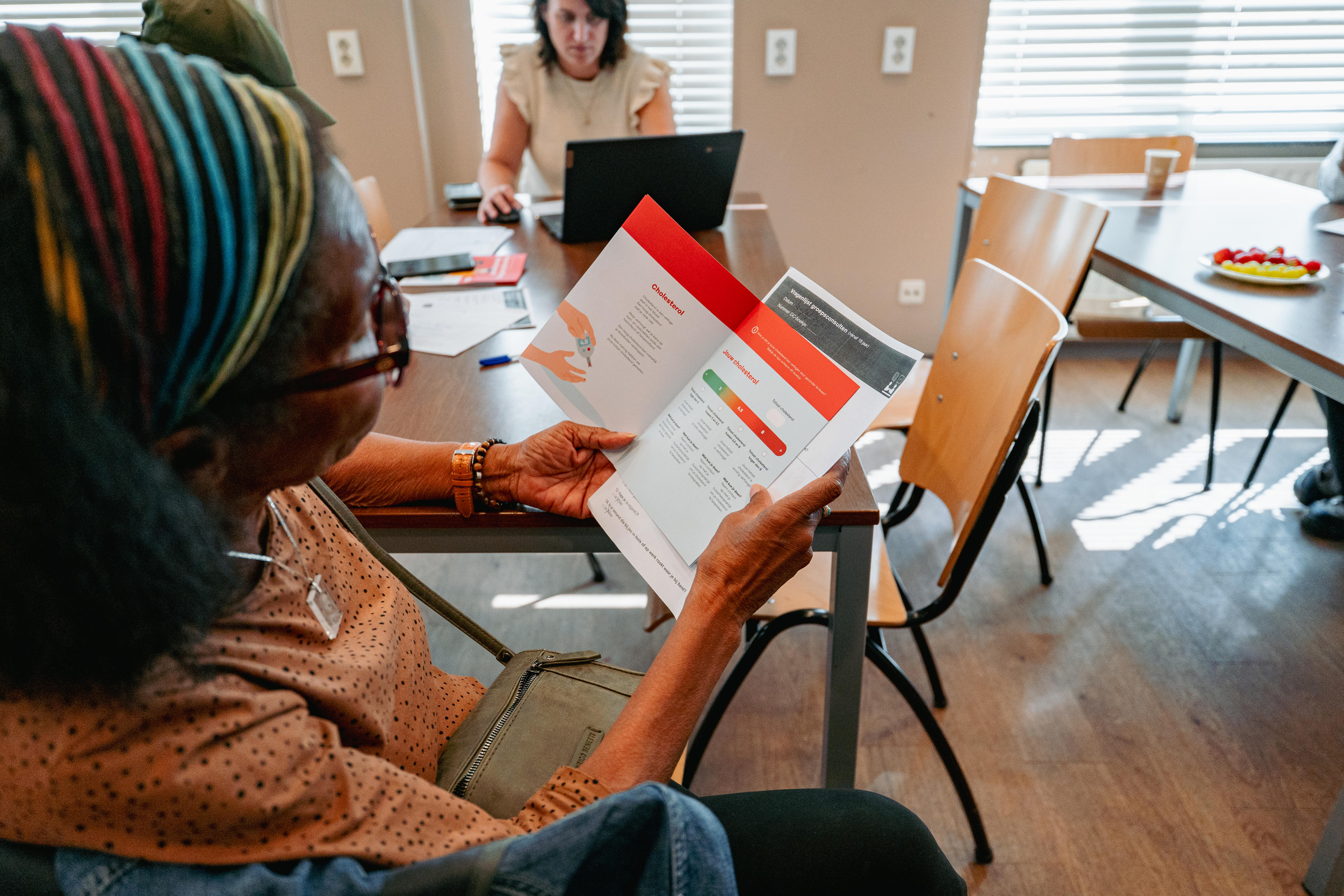
-
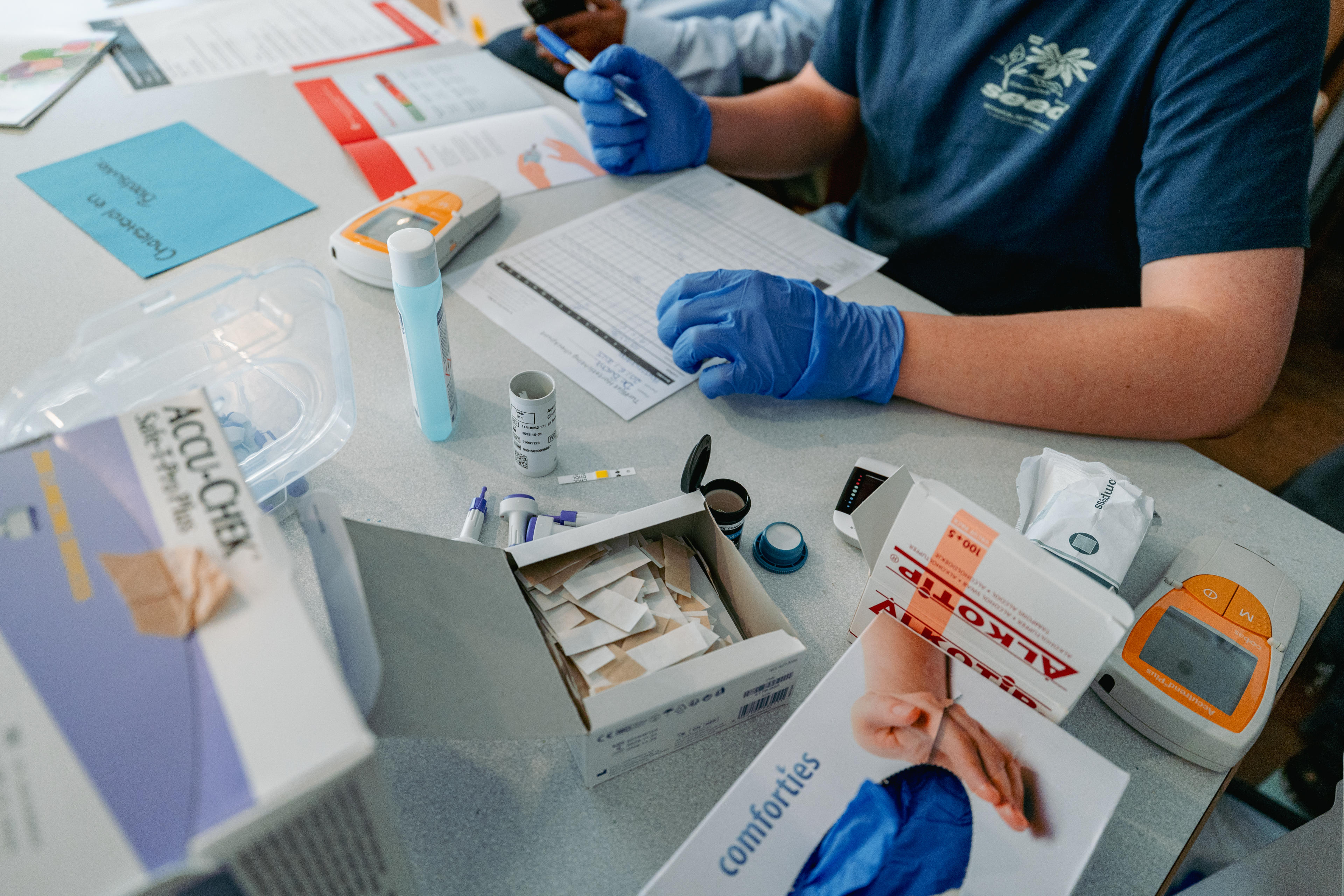
-
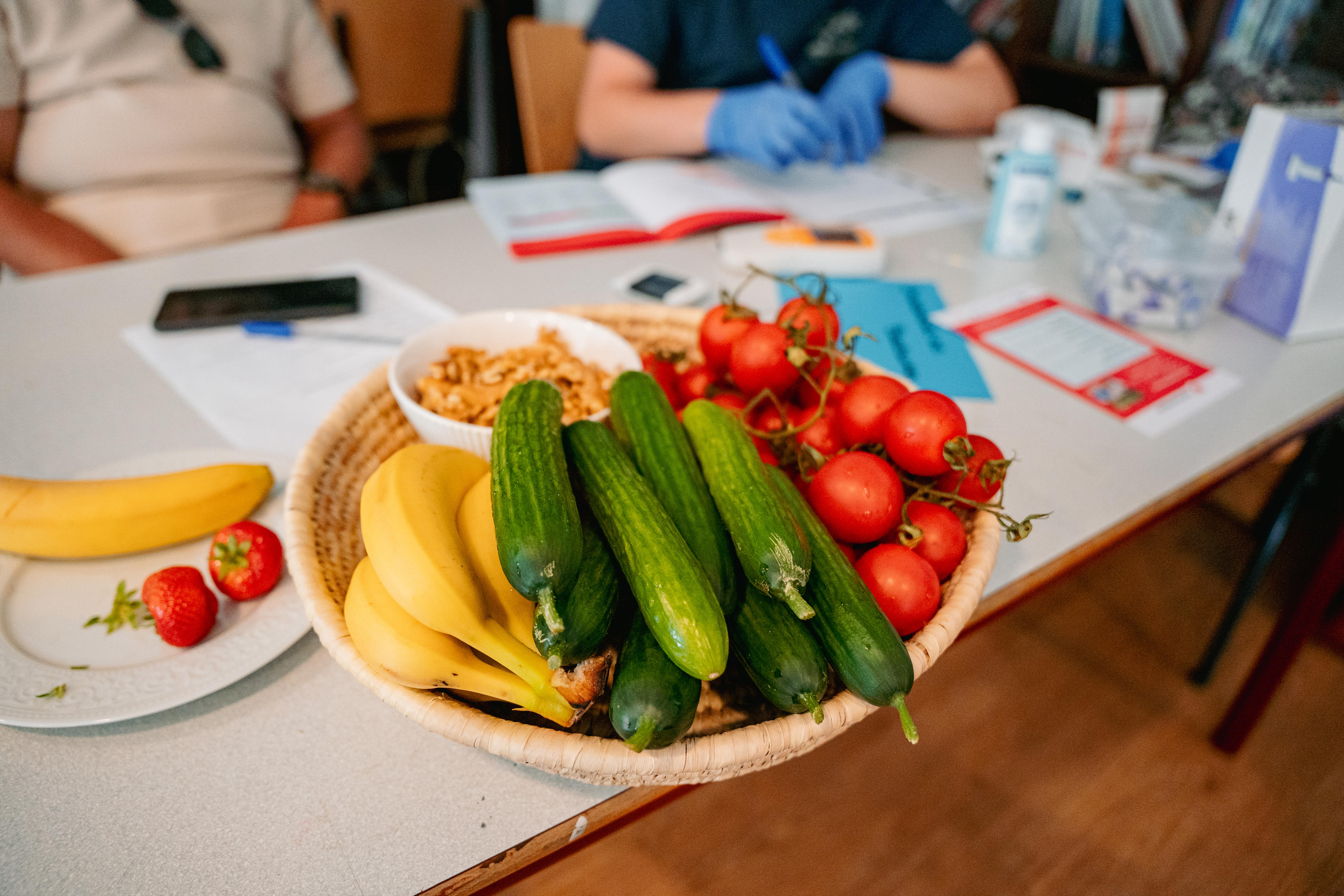
-
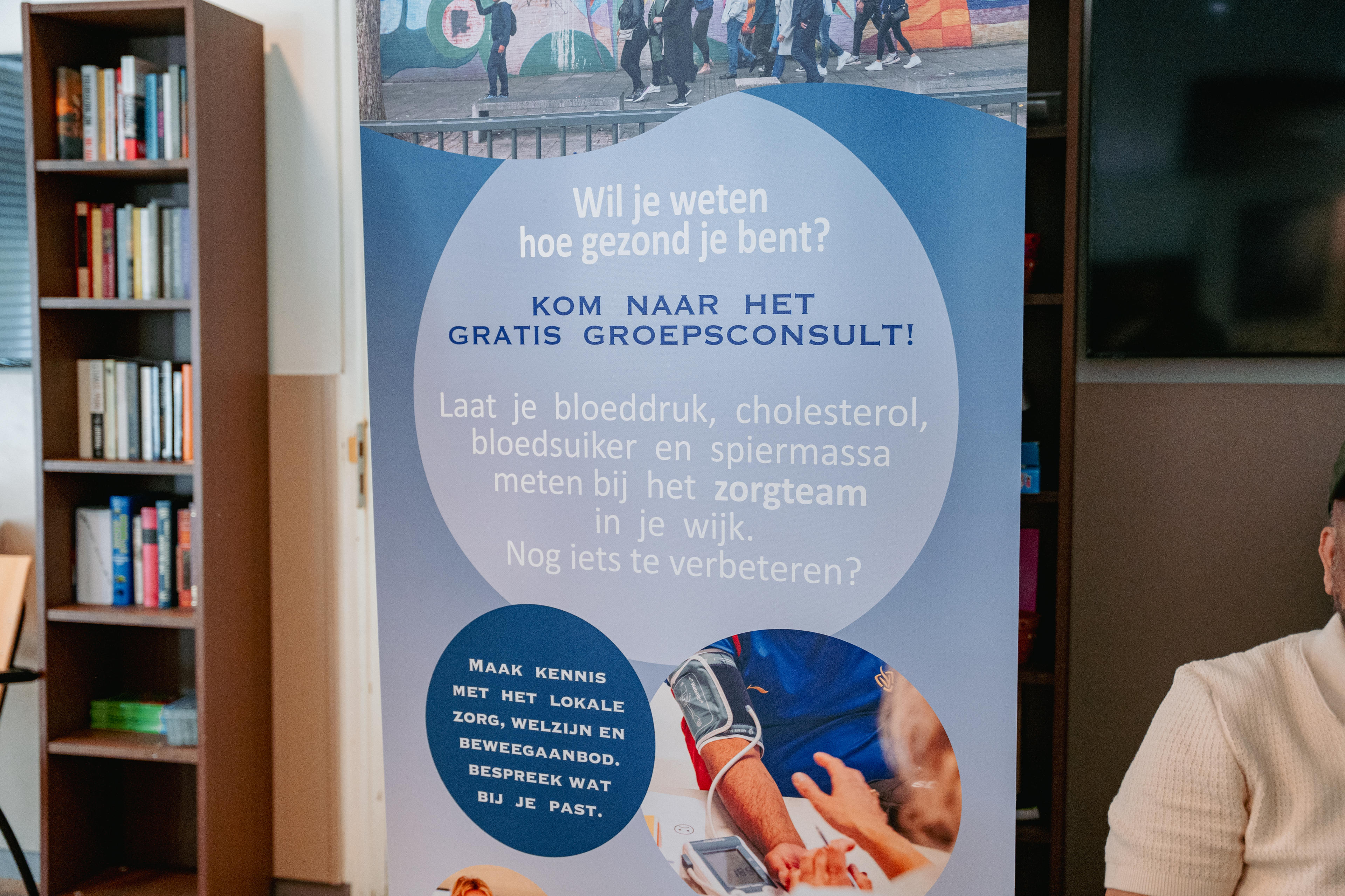
Text: Margriet van der Zee
Photography: Wilke Geurds

